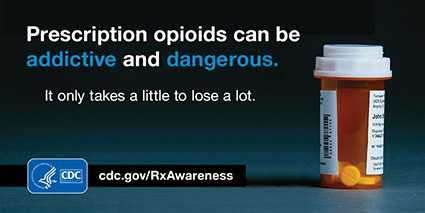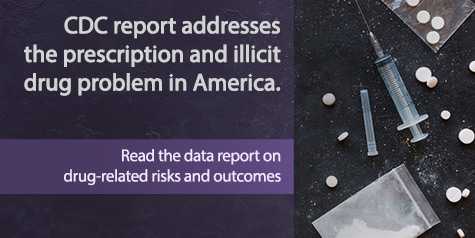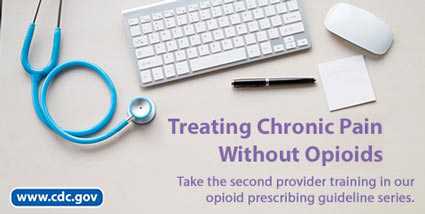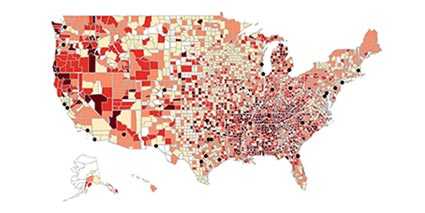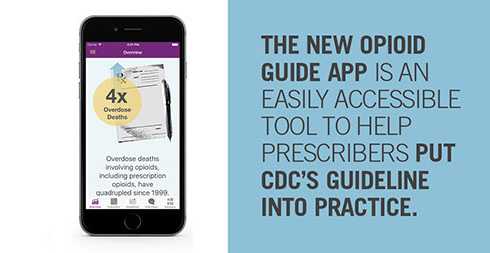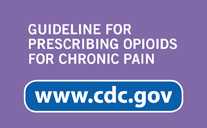The United States is in the midst of an opioid overdose epidemic.
Opioids (including prescription opioids, heroin, and fentanyl) killed more than 33,000 people in 2015, more than any year on record. Nearly half of all opioid overdose deaths involve a prescription opioid.
What Can You Do to Prevent Opioid Overdose Deaths?
The Public
Learn more about opioids in order to protect yourself and your loved ones from opioid abuse, addiction, and overdose.
States
Consider ways to increase use of Prescription Drug Monitoring Programs, which are among the most promising state-level interventions.
Healthcare Providers
Consider CDC’s opioid prescribing guideline for chronic pain, which helps primary care providers offer safer, more effective care.
CDC’s Work to Prevent Opioid Overdose Deaths
CDC is committed to an approach that protects the public’s health and prevents opioid overdose deaths.
Improving Data
Improving data quality and timeliness to better track trends, identify communities at risk, and evaluate prevention strategies.
Strengthening State Efforts
Strengthening state efforts by scaling up effective interventions.
Equipping Health Care Providers
Improving patient safety by equipping health care providers with the data and tools needed to improve opioid prescribing.
In the News
- CDC awards $28.6 million to help states fight opioid overdose epidemic (September 5, 2017)
- Annual Surveillance Report of Drug-Related Risks and Outcomes – United States, 2017 [PDF – 1 MB]
- MMWR: Trends in deaths involving heroin and synthetic opioids excluding methadone and drug product reports by U.S. Census region, United States — 2006–2015
- CDC Vital Signs: Opioid Prescribing–Where You Live Matters
- MMWR: Vital Signs: Changes in opioid prescribing in the United States, 2006-2015
- MMWR: Increases in Drug and Opioid-Involved Overdose Deaths — United States, 2010–2015
- CDC Publications
HHS Efforts
The United States Department of Health and Human Services (HHS) Secretary Price is committed to addressing opioid abuse, dependence, and overdose. HHS has developed a five-point comprehensive strategy: (1) better data, (2) better pain treatment, (3) more addiction prevention, treatment, and recovery services, (4) more overdose reversers, and (5) better research. Several agencies within HHS have joined the effort.
Note: The CDC Opioid Overdose site contains information on opioids. To see more of CDC’s work on other substances, visit the CDC A-Z index.
- Page last reviewed: September 26, 2017
- Page last updated: September 26, 2017
- Content source:
- Centers for Disease Control and Prevention,
- National Center for Injury Prevention and Control,
- Division of Unintentional Injury Prevention


 ShareCompartir
ShareCompartir
